
Best Way to Learn Mechanical Engineering
Mar 29, 2025 5 Min Read 3299 Views
(Last Updated)
Are you into mechanical engineering? But, not sure how to start? Well, this may be the right blog for you.
In this blog, we will see the best ways to learn Mechanical Engineering, starting with a simple introduction, their roles and responsibilities, important skills and tools and the resources for each of the ways. To get a full understanding of this blog, stay tuned till the end. You will find a lot of interesting things in this blog!
Table of contents
- What is Mechanical Engineering?
- What does a Mechanical Engineer do?
- Roles and Responsibilities
- Best Ways to Learn Mechanical Engineering
- Online Bootcamps and Courses
- Youtube Videos
- Books
- Communities
- Blogs
- Skills and Tools for Mechanical Engineering
- Technical Skills
- Soft Skills
- Conclusion
- FAQs
- What is the best educational path for learning mechanical engineering?
- How can I enhance my practical skills in mechanical engineering?
- What resources can help me stay updated with the latest advancements in mechanical engineering?
What is Mechanical Engineering?
From the name itself, we can say that mechanical engineering is the study of machines. It includes designing, analysing and manufacturing machines according to the requirements. Mechanical engineering is a combination of physics, thermodynamics, mathematics and material science to solve problems and create machines.
What does a Mechanical Engineer do?
A mechanical engineer is someone who has completed studies in mechanical engineering and specializes in operating and managing machines. Let’s see their responsibilities below.
Roles and Responsibilities
The roles and responsibilities of a mechanical engineer include:
- They are responsible for designing a prototype of a machine before building it.
- They conduct tests and inspections on prototypes and products to ensure that they meet the specifications.
- They maintain and solve problems in the existing systems.
- They collaborate with other engineers, such as product managers, designers and quality analysts to complete the project on time.
Think about all the amazing machines around us – from cars to robots. Mechanical engineers are the ones who create and design them. Let’s look into the best ways to learn mechanical engineering in the upcoming sections.
Best Ways to Learn Mechanical Engineering
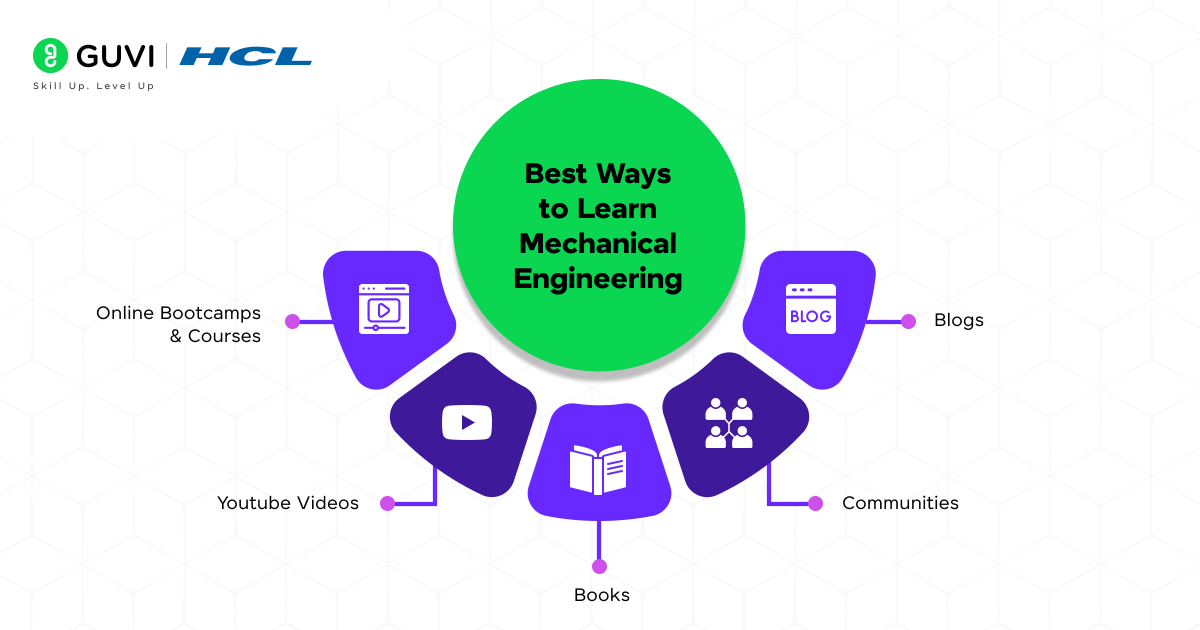
There are many ways you can start learning mechanical engineering. Based on your interests and speed at which you learn, you can choose any one of the following ways or you can choose a combination of ways to speed up your learning. Let’s see about each learning method in detail with resources.
Online Bootcamps and Courses
The first and best way to learn mechanical engineering is through online courses and bootcamps. Online courses provide you the flexibility to learn at your own pace and online bootcamps provide you with the facilities of collaborative learning and interacting with mentors. This is the fastest way to learn mechanical engineering and learn everything you need to become a mechanical engineer in a single module. These provide detailed roadmaps to achieve your goals with hands-on project guidance.
Various online courses and bootcamps are well-structured, beginner-friendly friendly and will teach you skills up to advanced engineering. These are paid courses and bootcamps, but worth a ton. It provides doubt clarification and mentoring sessions by the instructors from big industries. You will also be exposed to industry-level projects, which will help you boost your resume.
| Pros | Cons |
| Flexibility in learning at your own pace | It can be expensive sometimes |
| Networking Opportunities | Requires self-motivation, self-push |
| Structured curriculum with clear goals | Some courses may not explain the concept in-depth |
Resources
One of the most popular online courses is provided by Guvi’s Zen Class on ‘CAD Design and Simulation Course’, curated especially for mechanical engineering students and professionals. It provides industry-recognized certifications, a month-long Internship with certification and hands-on experience.
You can also find relatable resources on platforms like
Youtube Videos
The second most common way to learn mechanical engineering is through YouTube videos. Some people like to watch videos, some like to read and some like to engage in order to learn something new. If you are a person who enjoys learning through short videos and tutorials. Then, this is the right option for you.
There are tons of videos available on YouTube to learn about mechanical engineering. You can find approximately 8 to 10 videos for each concept. You have to choose which suits you the best. This way may be time-consuming for searching suitable videos for each concept. But it provides in-depth knowledge.
| Pros | Cons |
| Free to access the content | Time consuming in searching for videos |
| Varieties in teaching style and content types | Lack of structure |
| Accessible to all skill levels | Limited interaction with instructors |
Resources
Below channels offer free and high-quality content on mechanical engineering.
Books
One of the most reliable methods of learning mechanical engineering is books. Books are the traditional way of learning. It offers in-depth knowledge on specific topics and it is written based on the experience of the author, so you can learn from the experience. It provides a detailed explanation for each concept using examples, illustrations and also provides exercises to help you grasp the concepts firmly.
| Pros | Cons |
| Provides comprehensive and detailed information | No feedback and doubt clarification |
| Well-defined roadmap to learn | Can be slow to progress |
| Not beginner-friendly | Not beginner friendly |
Resources
The most popular books for mechanical engineering students are
- Mechanical Engineering Design by J.E. Shigley
- Introduction to Fluid Mechanics by Robert W.Fox
- Engineering Mechanics: Dynamics by J.L Meriam.
Communities
Communities are an interactive way to learn mechanical engineering. Joining mechanical engineering communities can be a highly rewarding and effective way to enhance your learning. It allows you to interact with other learners, professionals and instructors to clarify your doubts, get their experience and guidance. If you are a person who loves to learn new things collaboratively, then this might be the best choice for you!
| Pros | Cons |
| Peer support and collaborative learning | Requires time to find the active community |
| Opportunity to network and ask questions | Information may be inconsistent or unverified |
Resources
You can find some of the active communities on platforms like
Blogs
The last way to learn mechanical engineering is through reading blogs. Blogs are a great way to learn specific topics and to gain in-depth knowledge. These are great alternatives to books. If you are a person who is bored with reading books that have 100+ pages, like me, then blogs are suitable for you.
| Pros | Cons |
| It is short and crisp to provide information | May not be always deeply technical |
| Many free resources and tutorials are available | May lack structured learning paths |
| Great alternative to books | It may not always be deeply technical |
Resources
You can start your journey in learning mechanical engineering through Guvi blog’s on How long would it take to learn mechanical engineering, mechanical engineering career roadmap and other blog providers are The Mechanical Engineering Blog, Engineering.com and The Engineering Toolbox.
Skills and Tools for Mechanical Engineering
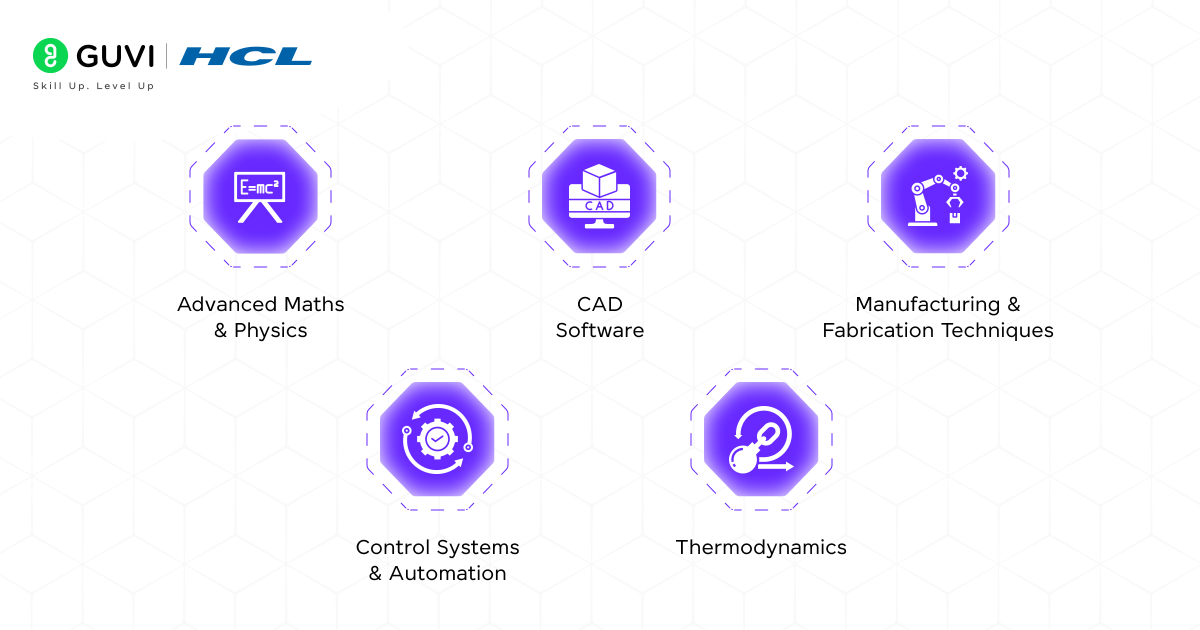
Acquiring a wide variety of skills is mandatory for a mechanical engineer. These skills are classified into technical skills and soft skills. Both are necessary for solving complex engineering problems, collaborating effectively, and advancing in your career. Below are the key skills you will gain along the way.
Technical Skills
Let us see some of the required technical skills for a mechanical engineer.
- Advanced Maths and Physics
Mathematics and physics are the fundamentals of mechanical engineering. You will gain knowledge on advanced concepts like calculus, differential equations, linear algebra, and physics to solve problems related to dynamics.
- CAD Software
Due to the advances in the computer science field, gaining CAD knowledge has become mandatory for every mechanical engineer. Computer Aided Design(CAD) software is used to design, model and simulate prototypes for a system. Tools such as SolidWorks, AutoCAD, and CATIA are used for designing.
- Manufacturing and Fabrication Techniques
The next skill is manufacturing and fabrication techniques. This is important because mechanics study different materials and fabrication processes used for the manufacturing of systems with different specifications and uses. This is a crucial skill that a mechanic should possess.
The common manufacturing methods are cutting, forming, 3D printing, CNC machining, welding, and casting to build a finished product according to a design specification.
- Control Systems and Automation
Learning control systems and automation tools is optional. But if you learn it, you can get a higher-level position job. You can design and control systems using simulation tools like MATLAB or Simulink to develop automated systems, which are crucial in fields such as robotics and manufacturing.
- Thermodynamics
The last and most important skill is thermodynamics. It is a study of energy and heat transfer between systems. It will be great if you gain expertise in energy systems, heat transfer processes, and how to manage thermal systems in engines, HVAC systems, and energy-efficient designs.
Soft Skills
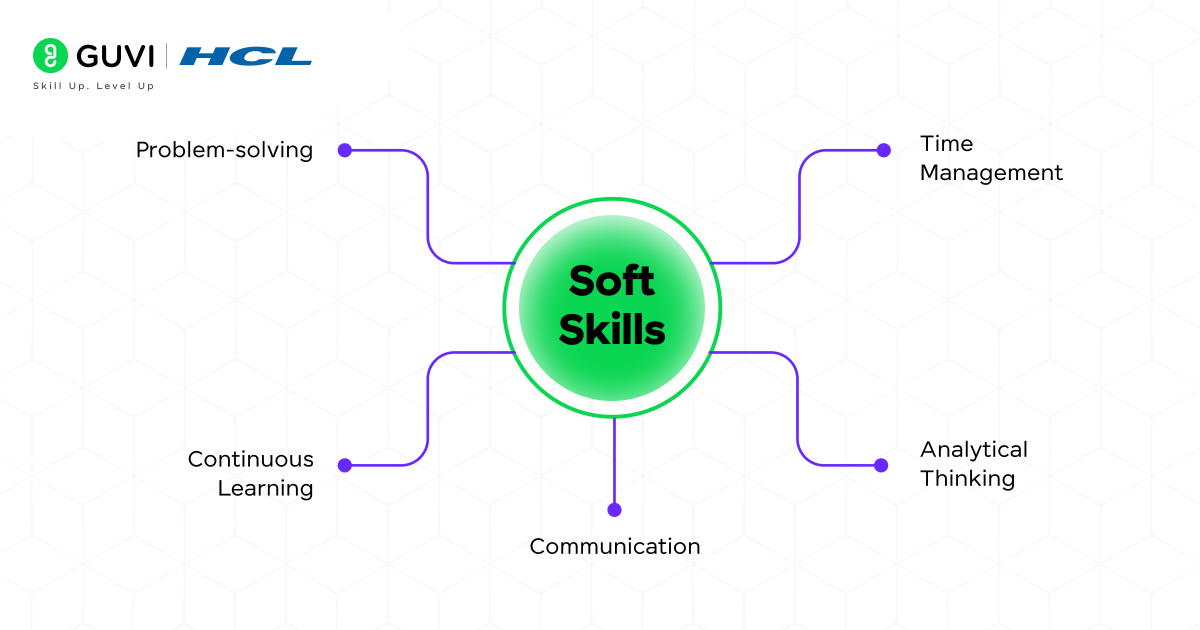
Soft skills are as important as technical skills. These skills act as an intermediate between technical and non-technical people. Similar to technical skills, it can also be studied and learned. Skills such as communication, problem-solving, and collaboration skills are essential for effective collaboration and project execution. These skills help mechanical engineers navigate challenges, work with cross teams, and ensure projects are completed on time and to client’s expectations. In this section, we will see about these non-technical skills.
- Problem-solving: Mechanical engineering often requires finding innovative solutions to complex engineering challenges.
- Continuous Learning: The field of mechanical engineering is constantly evolving with new technologies, materials, and methods. You should embrace lifelong learning to stay updated with the latest trends, software tools, and industry advancements.
- Communication: They frequently collaborate with multidisciplinary teams and must be able to explain complex technical concepts to non-technical stakeholders.
- Time Management: Managing multiple projects or tasks simultaneously is common in web development. Good time management skills will help you meet deadlines and handle your workload effectively.
- Analytical Thinking: Strong analytical skills are crucial for solving problems, interpreting data, conducting tests, and optimizing the designs of an existing or new system.
That’s all the skills you need to learn you will learn along the way to become a successful mechanical engineer.
Conclusion
In conclusion, the journey to learning mechanical engineering is both exciting and challenging. The time it takes to master this field varies based on your learning method, prior knowledge, pace, and the resources you choose. You can choose online courses and bootcamps for structured learning, YouTube videos for flexible learning, books for in-depth knowledge, communities for interactive learning and blogs for up-to-date information. Each has its own advantages and disadvantages, it’s your wish and interest to pick one of the methods and start pursuing it with pure dedication and determination. All the best!
FAQs
The best educational path for learning mechanical engineering typically involves pursuing a bachelor’s degree in mechanical engineering at a reputable university or college. This formal education provides a strong foundation in the field. Additionally, online courses, tutorials, and self-study can supplement your learning.
To enhance your practical skills, consider engaging in hands-on projects and experiments. Building DIY projects, working with tools, and participating in engineering clubs or maker spaces can provide valuable practical experience. Internships and co-op programs with engineering firms are also excellent opportunities to apply what you’ve learned in real-world scenarios.
To stay updated, utilize educational websites, industry news sources, and professional organizations. Websites like ASME.org and Machine Design offer insights into industry trends. Joining engineering forums and communities can also help you connect with experts and stay informed about the latest developments in mechanical engineering.

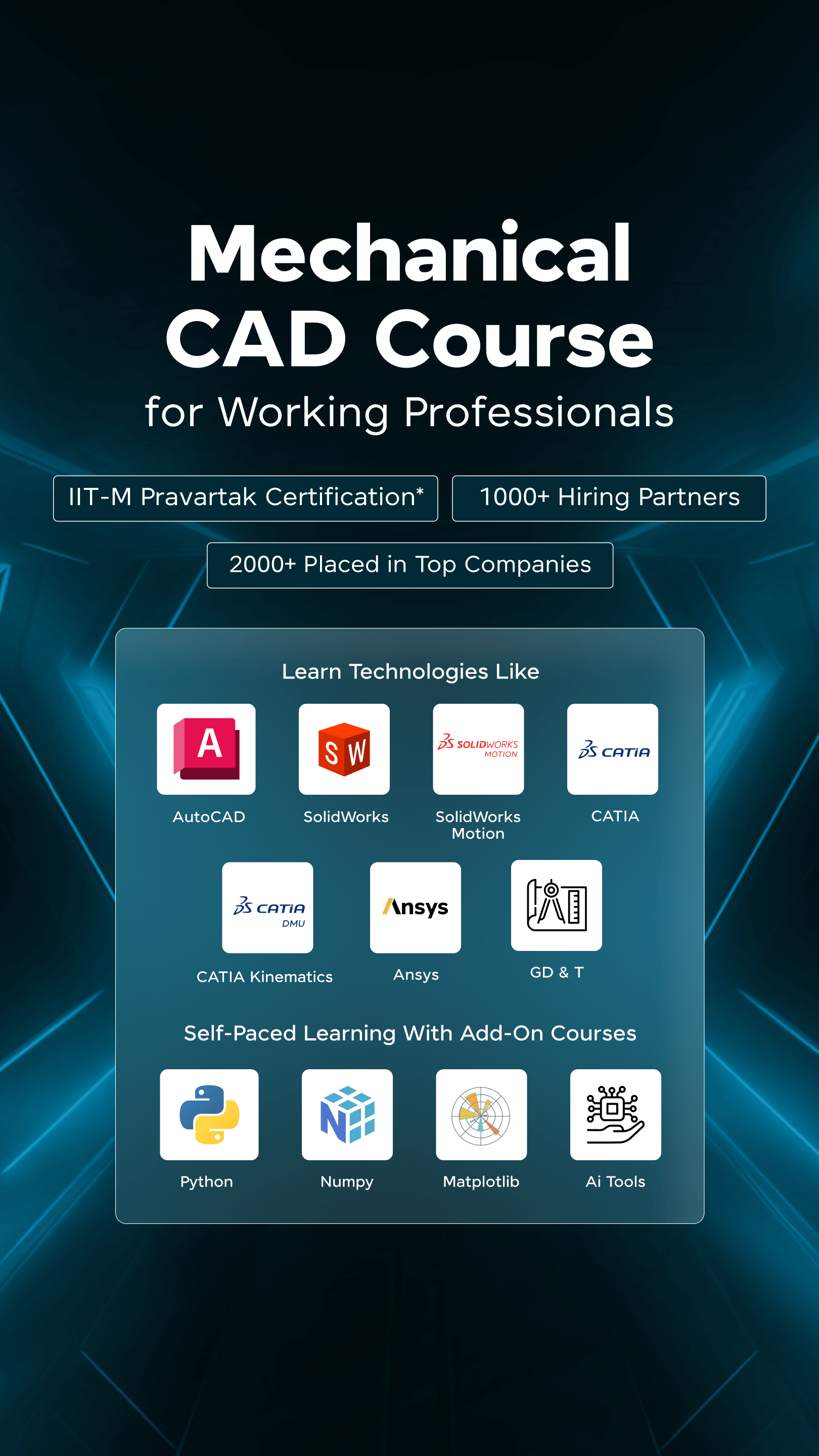




















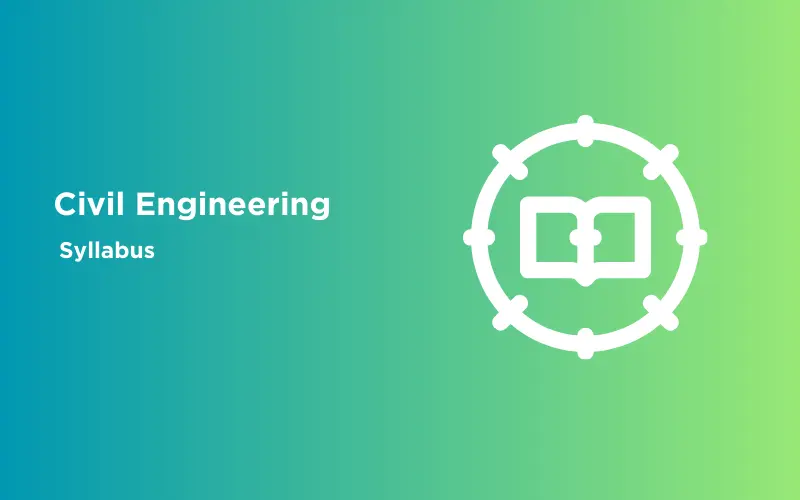

![Project-Based Learning: Smart Ideas and Important Tips To Implement It [2025] 8 Feature Image - Project-Based Learning](https://www.guvi.in/blog/wp-content/uploads/2024/05/feature_image.webp)



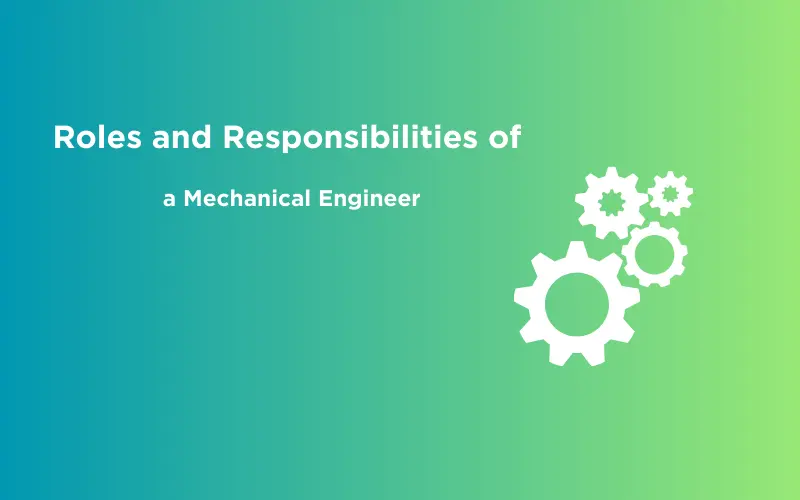
![How to Make Amazing Projects for Internships and Placements? [2025] 10 projects for internships and placements](https://www.guvi.in/blog/wp-content/uploads/2024/04/Feature-Image-2.png)

Did you enjoy this article?